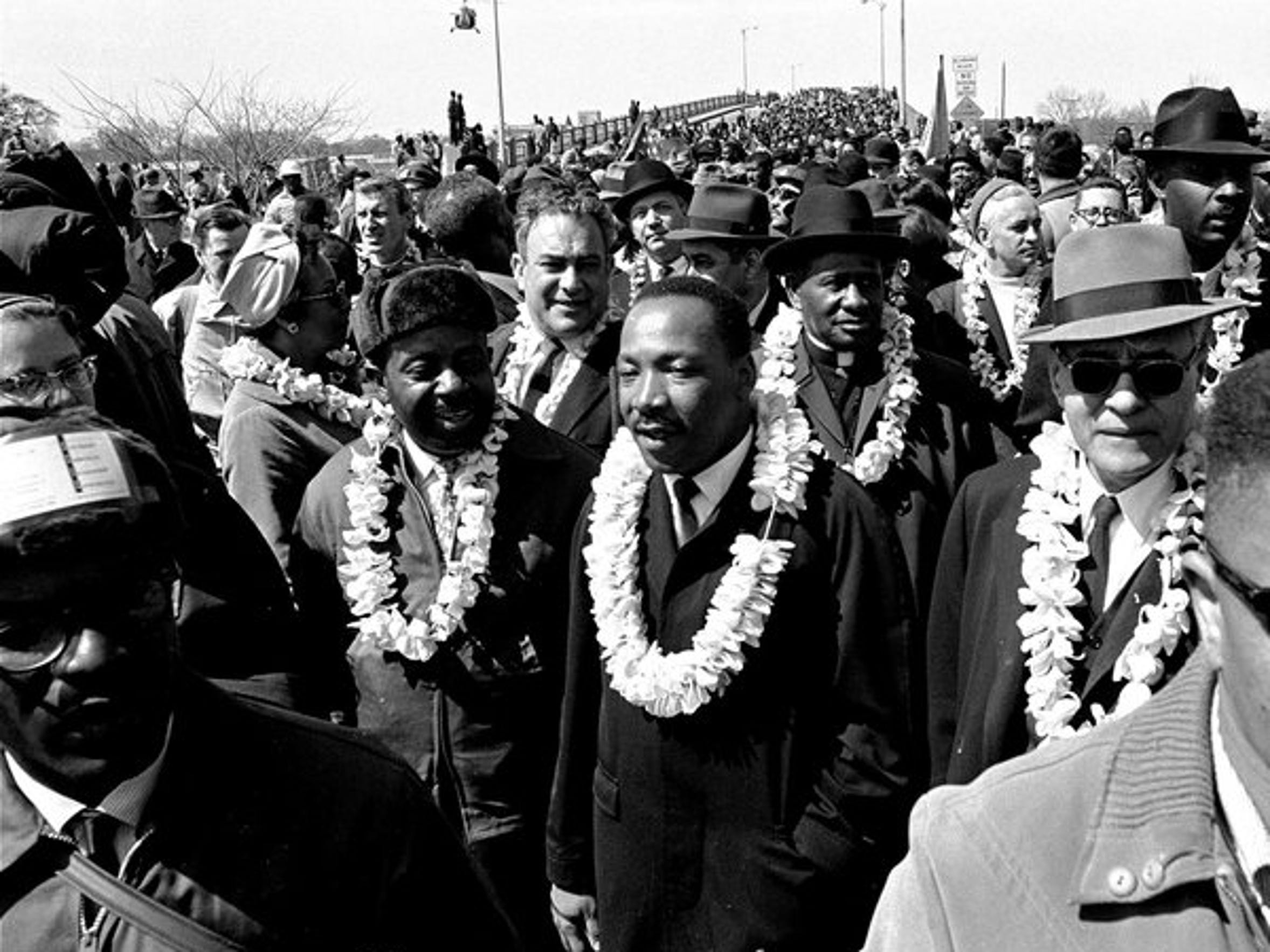March 7 was the 50th anniversary of "Bloody Sunday," the first attempt by black protesters to march from Selma, Ala., to Montgomery to demand voting rights. Alabama state troopers acting under the orders of Gov. George Wallace brutally halted their march.
The protesters weren't deterred. On March 25, 1965, the Rev. Martin Luther King Jr. led thousands to the completion of the 54-mile pilgrimage from Selma to Montgomery. Dr. King rightfully described the protest as "a shining moment in the conscience of man." The march solidified support for the Voting Rights Act of 1965.
Prior to 1965, there might have been three black mayors nationally. In 2003, the National Conference of Black Mayors put the total number at over 500. During the 1960s, there were fewer than 10 black U.S. representatives. Today there are 43. Since 1965, there have been three black state governors. Nationwide, there are over 10,000 black elected officials.
There is no question that blacks have been successful in the political arena, recently capping off their success with the election of a black president.
It shouldn't be left out that since the '60s, there has been a major transformation among whites. Much of black political success could not have been achieved without white votes.
Black leaders stress the importance of political power and getting out the vote, but we might ask how important political power is to the ordinary black person. As a start toward answering that question, we might examine black life in cities where blacks hold considerable political power.
Detroit is the nation's most dangerous city. Rounding out Forbes magazine's 2013 list of the 10 most dangerous cities are Oakland, Calif.; St. Louis; Memphis, Tenn.; Stockton, Calif.; Birmingham, Ala.; Baltimore; Cleveland; Atlanta; and Milwaukee.
According to a recent American Community Survey by the U.S. Census Bureau, the 10 poorest cities with populations of more than 250,000 are Detroit, with 33% of its residents below the poverty line; Buffalo, N.Y., 30%; Cincinnati, 28%; Cleveland, 27%; Miami, 27%; St. Louis, 27%; El Paso, Texas, 26%; Milwaukee, 26%; Philadelphia, 25%; and Newark, N.J., 24%.
In addition to poverty, there is grossly inferior education and high welfare dependency in these cities.
The most common feature of these cities is that for decades, all of them have had Democratic administrations. Some cities — such as Detroit, Buffalo, Newark and Philadelphia — haven't elected a Republican mayor for more than a half-century.Read the rest of the story HERE.
If you like what you see, please "Like" us on Facebook either here or here. Please follow us on Twitter here.








No comments:
Post a Comment